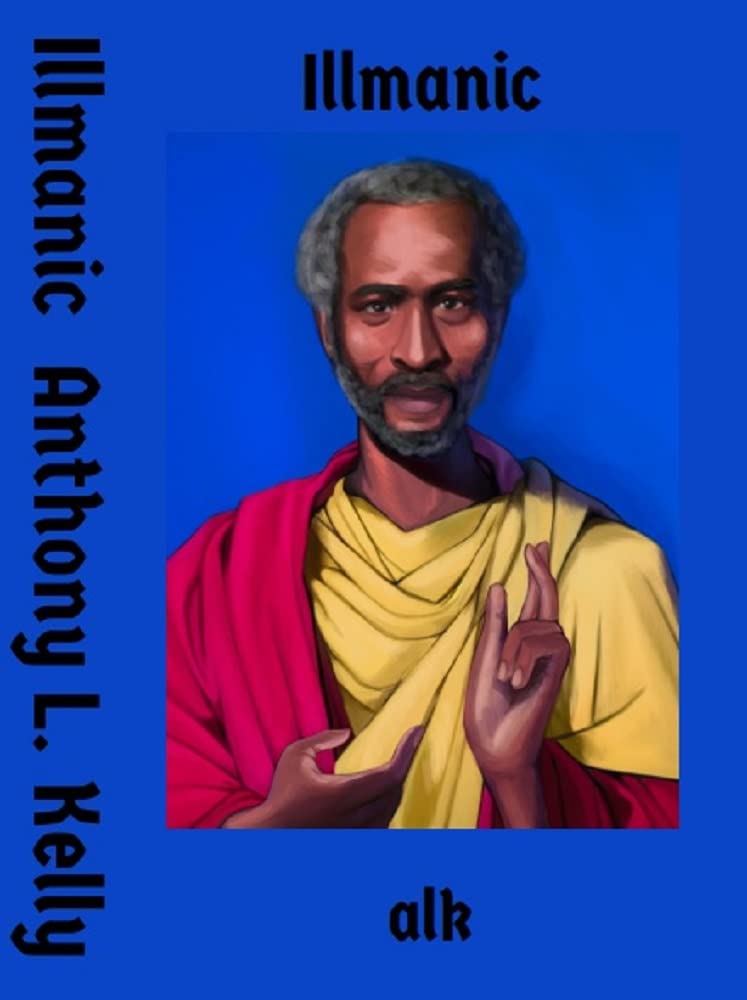We recently sat down with Anthony L. Kelly to discuss his latest novel, ILLMANIC, a gripping tale that delves into the mental health struggles faced by Monte Jones, an African American Army veteran. The novel, which has been widely praised for its authentic portrayal of PTSD and the complexities of mental illness, offers readers a thorough exploration of these important issues.
QoL: Anthony, thank you for joining us. Could you tell us a bit about your inspiration for writing ILLMANIC?
AK: Thank you for having me. The inspiration for ILLMANIC comes largely from my own life experiences. My mother has been battling bipolar disorder for over twenty years, and her journey was a huge impetus for this book. I wanted to shed light on the strain mental health issues can place on individuals and their families.
Q:Writing about such intense emotions and complex issues must have been challenging. How did you manage to capture these experiences so vividly?
AK: It was definitely a significant challenge. I often likened the process to method acting—I had to become the character Monte Jones each time I wrote. Doing so helped me convey the raw emotions and reality of living with PTSD and dealing with mental illness in the family. It wasn’t easy, but it was necessary to tell this story authentically.
Q: What key message do you hope readers take away from ILLMANIC?
AK: The most crucial takeaway is the fragility of the human mind. The mind can break if it’s strained too hard and too often. Readers need to be mindful of what and who they allow into their thoughts, and understand the vital role that support systems play in mental health.
QoL: As an African American author, how does your heritage influence your writing?
AK: My heritage deeply colors my writing. I strive to bring authentic voices and experiences into my work, capturing the essence of the people and conversations I’ve known throughout my life. It’s essential to craft stories that reflect diverse experiences and promote inclusivity.
QoL: What advice would you offer to aspiring writers looking to tackle complex issues such as mental health in their work?
AK: My advice would be simply to keep writing. The more you write, the better you become, even if it doesn’t seem apparent at first. Be bold and don’t be afraid to explore difficult topics—you won’t know what you’re capable of until you try.
QoL: How can readers connect with you and support your ongoing work?
AK: Readers can find me on my website, writedisway.com, where I share updates and insights about my books. I’m also active on Twitter and Instagram under the handle @writedisway. You can purchase ILLMANIC on Amazon and, if inclined, support my journey via CashApp at $writedisway. Engaging with my work and spreading the word about ILLMANIC is immensely appreciated.
QoL: Thank you so much for sharing your insights, Anthony. We look forward to seeing more of your work in the future.
AK: Thank you for having me. It’s been a pleasure.
This interview with Anthony L. Kelly highlights the impactful role literature can play in raising awareness about mental health. By exploring diverse voices and personal stories, we can foster a deeper understanding and a more compassionate society.

Continuing the Conversation on Mental Health Through Literature
Anthony L. Kelly’s ILLMANIC offers an important look at mental health issues. The novel sheds light on the challenges of PTSD and other mental health struggles, urging readers toward empathy and understanding.
It’s crucial to support diverse voices in literature that bring authentic and inclusive stories to the forefront. Books like ILLMANIC help break the stigma of mental health issues and foster a more caring society.
Aspiring writers, your voice is important. Keep writing, exploring, and being bold in your storytelling. Literature can spread awareness and make a positive impact.
Rich Woman Magazine is committed to celebrating stories of resilience, authenticity, and hope. Let’s work together to create a more understanding and compassionate future.
